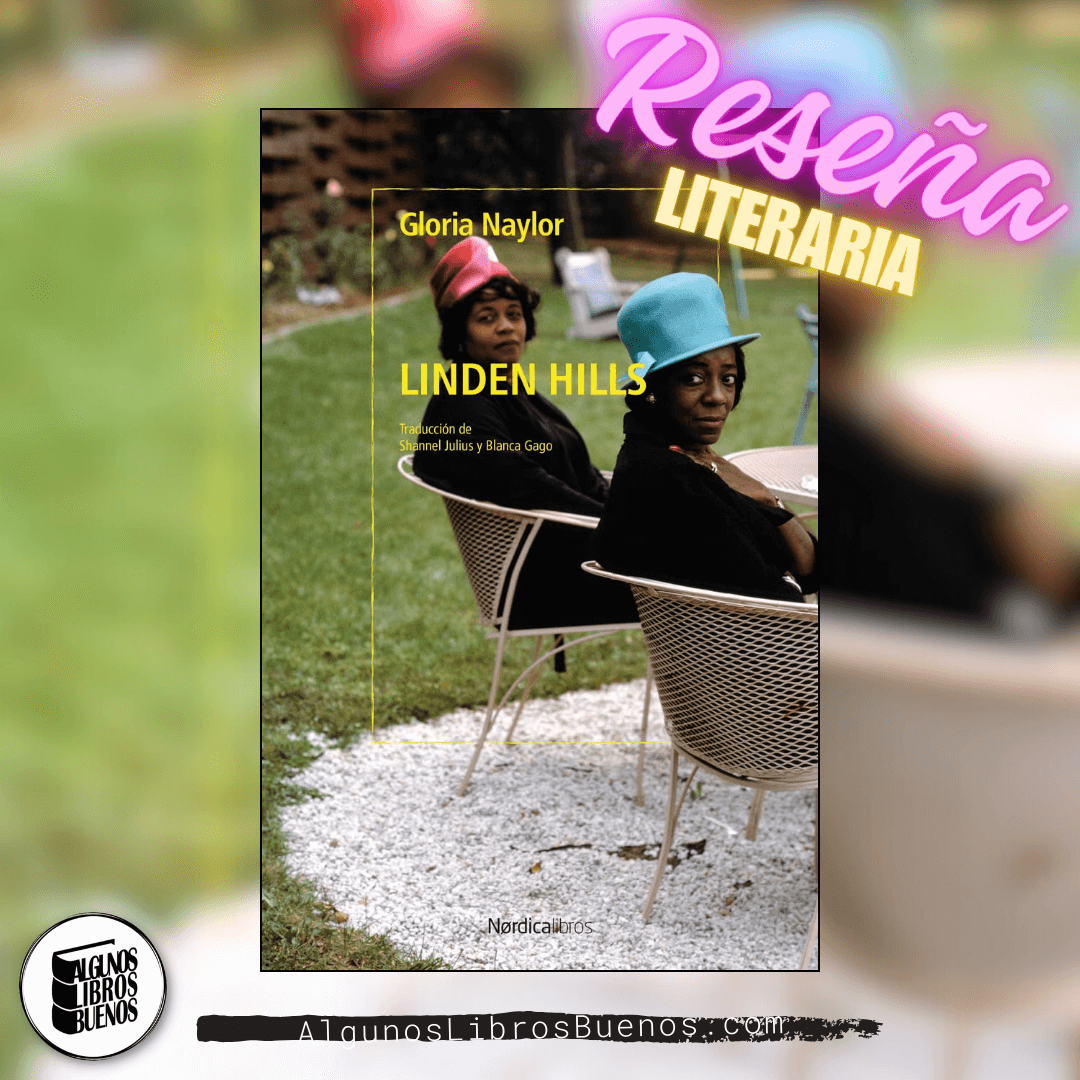
Review of the book “Linden Hills” by Gloria Naylor.
By Rebeca Aguilar.
Gloria Naylor (1950-2016) was an American novelist known for her exploration of the experiences of African American women in today’s society. Although she is not so well known in our country, the truth is that in the United States she is usually associated with authors of the stature of Toni Morrison or Alice Walker.
Her most famous work, “The Women of Brewster Place” (1982), received the National Book Award and was adapted into a successful television miniseries. Last year, the Arde publishing house published its “Bailey’s Café” (1992), and this year it was Nórdica that decided to publish this “Linden Hills” (1985), which is a highly suggestive and impressive read.
Linden Hills is a luxury development whose origins date back to 1820, when Luther Nedeed decided to buy a piece of mountainous land that no one cared about. He had a dream: to turn that desolate place into a neighborhood for the high-status black community. He wanted to make it the perfect place to live, and at the same time it would be his twisted way of fighting against racism and the prejudices of white people, who would long to live in such an exclusive and prestigious area.
But there is a dark and disturbing aura in the way this community was created and maintained. From the beginning we are told that Luther sold his wife and children into slavery to pay for the land. Furthermore, over the generations, Luther’s successive descendants (to add to the confusion, they all have the same name) have exercised tight control over who their neighbors can be. Nobody owns the houses, but they are tenants. They sign a rental contract for, mind you, a thousand years and one day, which can be terminated if they do not comply with a series of unwritten rules.
Let them think as they want; let them say what they want, black or white. Sit there and wait and they will make you a rich man thanks to the two things that everyone will have to do: live and die.
And now comes the most interesting thing of all, if possible: the novel is a reinterpretation of Dante’s “Divine Comedy.” And specifically, his “Inferno.”
White Willie and Shit Lester are two twenty-something aspiring poets who, during the five days before Christmas, are going to walk the streets of Linden Hills offering their services as “handymen.” The urbanization is divided into arches, in reference to the rings of Dante’s Inferno. And as you advance through the increasingly luxurious arches, you physically descend through the hills. But this decline is not only physical: young people will encounter characters and situations of increasing moral and spiritual decadence.
The last house, the one at the bottom, belongs, of course, to Luther, the great villain of this story.
In Linden Hills the price of economic and social success entails the loss of moral values, emotions and one’s own identity. It is as if they had given up their souls and humanity to live there, all complying with Luther’s wishes and impositions without question, like automatons. The only values that matter are materialism, wealth accumulation, superficiality, hypocrisy, and maintaining the status quo. Although sometimes discordant voices arise or people who refuse to assume the role expected of them, such as that of the Reverend Michael Hollis, or Laurel Dumont, whose stories you will learn as the plot progresses.
They had become friends through nosebleeds, but giving voice to the bruised spaces of the heart made them brothers.
In this urbanization we are going to find homophobia, elitism, racial prejudices and, above all, machismo. Because the other main protagonist of the book is Luther’s wife, Willa, who has lived since the beginning of the novel locked in the basement of his mansion, from where she remembers the different Nedeed women through the texts they left behind: diaries, letters. , lists of ingredients, photo albums… all of them suffered violence from their husbands. It is, to say the least, curious that an urbanization founded to fight against oppression based on race, was transformed into a community so oppressive against homosexuals, women or the lower classes.
In short, “Linden Hills” is a book that will not leave you indifferent, about the sacrifices involved in achieving the American dream and the destructive nature of ambition. An essential reading for 2024.
Source: https://algunoslibrosbuenos.com/linden-hills


